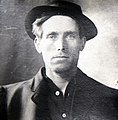
Introduction

- In trade unions, workers campaign for higher wages, better working conditions and fair treatment from their employers, and through the implementation of labour laws, from their governments. They do this through collective bargaining, sectoral bargaining, and when needed, strike action. In some countries, co-determination gives representatives of workers seats on the board of directors of their employers.
- Political parties representing the interests of workers campaign for labour rights, social security and the welfare state. They are usually called a labour party (in English-speaking countries), a social democratic party (in Germanic and Slavic countries), a socialist party (in Romance countries), or sometimes a workers' party.
- Though historically less prominent, the cooperative movement campaigns to replace capitalist ownership of the economy with worker cooperatives, consumer cooperatives, and other types of cooperative ownership. This is related to the concept of economic democracy.
The labour movement developed as a response to capitalism and the Industrial Revolution of the late 18th and early 19th centuries, at about the same time as socialism. The early goals of the movement were the right to unionise, the right to vote, democracy and the 40-hour week. As these were achieved in many of the advanced economies of western Europe and north America in the early decades of the 20th century, the labour movement expanded to issues of welfare and social insurance, wealth distribution and income distribution, public services like health care and education, social housing and common ownership. (Full article...)
Selected article
A Project Labor Agreement (PLA), also known as a Community Workforce Agreement, is a pre-hire collective bargaining agreement with one or more labor unions that establishes the terms and conditions of employment for a specific construction project. Before any workers are hired on the project, construction unions have bargaining rights to determine the wage rates and benefits of all employees working on the particular project and to agree to the provisions of the agreement. The terms of the agreement apply to all contractors and subcontractors who successfully bid on the project, and supersedes any existing collective bargaining agreements. PLAs are used on both public and private projects, and their specific provisions may be tailored by the signatory parties to meet the needs of a particular project. The agreement may include provisions to prevent any strikes, lockouts, or other work stoppages for the length of the project. PLAs typically require that employees hired for the project are referred through union hiring halls, that nonunion workers pay union dues for the length of the project, and that the contractor follow union rules on pensions, work conditions and dispute resolution.
PLAs are authorized under the National Labor Relations Act (NLRA), 29 U.S.C. §§ 151–169. Sections 8(e) and (f) of the NLRA, 29 U.S.C. §§ 158(e) and (f) make special exceptions from other requirements of the NLRA in order to permit employers to enter into pre-hire agreements with labor unions in the construction industry. The agreements have been in use in the United States since the 1930s, and first became the subject of debate in the 1980s, for their use on publicly funded projects. In these instances, government entities made signing PLAs a condition of working on taxpayer funded projects. This type of PLA, known as a government-mandated PLA, is distinct from a PLA voluntarily entered into by contractors on public or private work—as is permitted by the NLRA—as well as a PLA mandated by a private entity on a privately funded construction project.
Presidential executive orders issued since 1992 have affected the use of government-mandated PLAs for federal construction projects. Executive Order 13502, issued by President Barack Obama in February 2009, encouraged federal agencies to consider mandating PLAs on a case-by-case basis for federal contracts of $25 million or more. President Joe Biden's Executive Order 14063, which revoked Obama's executive order, requires PLAs on federal construction contracts of $35 million or more. (Full article...)June in Labor History
Significant dates in labour history.
- June 01 - Matthew Woll died; the United Farm Workers conducted its first strike in 1966 in Texas; the Cananea strike began in 1906 in Mexico
- June 02 - During the 1952 steel strike, the U.S. Supreme Court decided Youngstown Sheet & Tube Co. v. Sawyer; the Child Labor Amendment was adopted by the U.S. Congress; Charles Moyer died
- June 03 - The U.S. Supreme Court decided Hammer v. Dagenhart, outlawing child labor laws; Victor G. Reuther died; Emmanuel Christopher Loblack died
- June 04 - The Amalgamated Association of Iron and Steel Workers affiliated with the CIO; Lou Cunningham was born
- June 05 - Teamsters for a Democratic Union was formed; the U.S. Supreme Court decided Hague v. CIO; the California Agricultural Labor Relations Act became law
- June 06 - Don Farrell was born; CUPE 3902 was founded; N. M. Perera was born; Thomas Jackson died
- June 07 - The Steel Workers Organizing Committee was founded; the Matignon Agreements ended a general strike in 1936 in France; John Willcock died
- June 08 - Robert Lee Hill was born; Emil Rieve was born; Percy Wells was born
- June 09 - R. J. Thomas was born
- June 10 - The U.S. Supreme Court decided Anderson v. Mt. Clemens Pottery Co.; Frank Hayes died
- June 11 - John L. Lewis died; the Federación Sindical de Trabajadores Mineros de Bolivia was founded; José Bové was born
- June 12 - The 1981 Major League Baseball strike began in the U.S. and Canada; Philip Vera Cruz died
- June 13 - Israel Kugler was born; Tony Mazzocchi was born
- June 14 - 1911 Liverpool general transport strike began in the U.K.; government troops triggered the 2006 Oaxaca protests in Mexico
- June 15 - The Metal Trades Department, AFL–CIO was founded
- June 16 - Dave Beck was born
- June 18 - Battle of Ballantyne Pier occurred in Canada in 1935; the Battle of Orgreave occurred in 1984 in the U.K.
- June 19 - Nelson Cruikshank died; John W. Brown died; Tanong Po-arn disappeared
- June 20 - The American Railway Union was founded; Jim Bacon died; Evelyn Dubrow died; Alphonse Verville died
- June 21 - Nelson Cruikshank was born; the Herrin massacre occurred in 1922 in the U.S.; the U.S. Supreme Court decided United States v. Congress of Industrial Organizations; the "Molly Maguires" were hanged in the U.S.; Frank Drozak died
- June 22 - Riots occurred during the Grunwick dispute in 1976 in the U.K.; Paul Hall died; the U.S. Supreme Court decided Burlington Northern Railway v. White; the Sheffield Trades and Labour Council was founded; John Marius Trana was born
- June 23 - The Taft–Hartley Act became law in the U.S.
- June 24 - Terence V. Powderly died, Agnes Nestor was born
- June 25 - Winnipeg general strike of 1919 ended; the Smith–Connally Act became law in the U.S.
- June 26 - Timothy D. Murphy died; the Alliance of Concerned Teachers was formed; John W. Brown died; Emma Miller was born
- June 27 - The 1949 Australian coal strike began; the Industrial Workers of the World was founded; the Bureau of Labor Statistics was formed in the U.S.
- June 28 - President Grover Cleveland signed legislation establishing Labor Day in the U.S.; Alfred Miodowicz was born; Vere Bird died
- June 29 - The National Labor Relations Board was created; a lockout triggered the Homestead Strike; the merger of the blacksmiths and boilermakers formed the International Brotherhood of Boilermakers; Edward J. Carlough died; the U.S. Supreme Court decided Communications Workers of America v. Beck
- June 30 - Former labor union official Tomiichi Murayama became Prime Minister of Japan
More Did you know (auto-generated)
- ... that in the 1951 court case Kuzych v White, on appeal from the British Columbia Court of Appeal, five law lords of the British Judicial Committee ruled in favour of a Communist-led trade union?
- ... that a 1994 lightning strike in Egypt led to 469 deaths after oil tanks were ignited and flooded the village of Dronka with burning fuel?
- ... that the Women's National Basketball Players Association was the first trade union for professional women athletes?
- ... that Jennifer Bates led thousands of Amazon warehouse workers to petition a vote for a union in Bessemer, Alabama?
- ... that Italian anarchists founded the first trade union for bakers in Argentina?
- ... that the 2016 Jim Beam strike was the first labor strike in the company's history?
Related Portals
Selected image
Selected Quote
The miners are out of work... Their problem is much more than a mining problem—it concerns the standards of living not only for themselves but in other parts of the world."
|
— Eleanor Roosevelt. |
Did you know
- ...that Emil Rieve was elected president of his local union when he was only 22 years old, and president of the Textile Workers Union of America when he was 46?
- ...that the Auto-Lite Strike culminated in the "Battle of Toledo," a five-day melee between 6,000 striking workers and 1,300 members of the Ohio National Guard that left two dead and more than 200 injured?
- ... that John Marius Trana went from being an illegal trade union leader during the German occupation of Norway to being chairman of the Norwegian Union of Railway Workers?
Topics
Get involved
Associated Wikimedia
The following Wikimedia Foundation sister projects provide more on this subject:
-
 Commons
Commons
Free media repository -
 Wikibooks
Wikibooks
Free textbooks and manuals -
 Wikidata
Wikidata
Free knowledge base -
 Wikinews
Wikinews
Free-content news -
 Wikiquote
Wikiquote
Collection of quotations -
 Wikisource
Wikisource
Free-content library -
 Wikiversity
Wikiversity
Free learning tools -
 Wiktionary
Wiktionary
Dictionary and thesaurus
-

-

-

-

-
Random portal
Purge server cache






































































Recent Comments